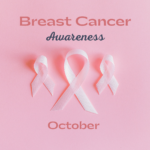Family planning (FP) is about spacing births. It allows couples, especially women, to plan when to have children and how many to have. Today, even some adolescents turn to FP to prevent unwanted pregnancies and early parenting.
As an adolescent myself, I must admit that my knowledge of FP is limited. Most of what I know comes from lessons taught during adolescence in school. In my opinion, it can sometimes feel inappropriate to teach adolescents deeply about FP, because it might give some the confidence to engage in pre-marital sex, knowing that there are options to prevent pregnancy. While being knowledgeable about FP is good because it can reduce teenage pregnancy and early parenting, it may also tempt others to engage in risky behaviour, which can lead to sexually transmitted infections (STIs).
Today, information about FP is easily accessible than ever. With technology and the internet, young people can find almost anything they want with just a connection. However, I believe the most reliable and helpful information comes from health centers, where professionals can provide detailed explanations and offer proper guidance.
Part of me feels that FP should be costly or limited for adolescents, so they do not take advantage of it. If it is too readily available, the likelihood of them engaging more in pre-marital sex may increase. On the other hand, restricting access could also worsen teenage pregnancy rates. This makes the issue very complex.
Personally, I think FP is best suited for married couples or adults. When adolescents access it without their parents’ knowledge, it could encourage irresponsible behaviour. However, I cannot ignore the fact that FP also reduces teenage pregnancy, helps prevent early parenting, and lessens dependency. In fact, some parents even encourage their adolescent daughters to use it as a preventive measure against unplanned pregnancy.
Recommendations
Many adolescents have some knowledge of their reproductive health, but curiosity or ignorance often leads to risky behaviours like premarital sex. Others lack this knowledge entirely, which is why education is critical. Beyond introducing adolescents to FP, there should also be efforts to engage them in hobbies and interests, such as sports and other activities that build confidence and self-worth.
Health centers that provide FP should also include counseling to remind adolescent girls of their value, their potential, and the risks of early sexual activity. Importantly, while family planning can reduce teenage pregnancy and dependency, adolescents must also be educated about possible side effects, so they can make informed decisions.
In conclusion, family planning is a powerful tool, but how it is introduced and accessed by adolescents requires careful thought. Education, guidance, and support from parents and health workers will go a long way in shaping healthier futures for young people.
ABOUT THE WRITER
Anna Agyekum Owusu is a student at the University of Professional Studies, Accra (UPSA), where she is pursuing a Bachelor of Arts in Communication Studies. She is passionate about communication and its power to foster peace and understanding. Anna enjoys reading during her leisure time and values building strong, respectful relationships with those around her. With her dedication and drive, she aspires to build a career as a Public Relations Officer (PRO) in an educational organization, where she hopes to contribute to effective communication and positive organizational growth.



